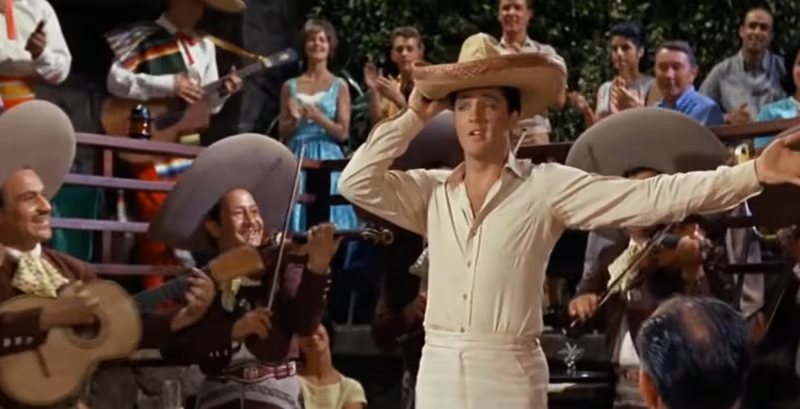"Dixieland Rock" is a lively track performed by Elvis Presley, featured in his 1958 film *King Creole*. This song, like many in Elvis’s repertoire, showcases his ability to blend different musical styles, in this case infusing rock 'n' roll with a Dixieland jazz influence. Here’s a deeper analysis of the context, lyrics, and significance of "Dixieland Rock."
Context of Creation
The song "Dixieland Rock" is set within the narrative of *King Creole*, a film where Elvis Presley plays Danny Fisher, a young man with musical talent who gets caught up with the wrong crowd in New Orleans. The city, known for its rich musical heritage, provides a vibrant backdrop that is aptly reflected in the song. The film's setting in the jazz-soaked atmosphere of New Orleans plays a critical role in the style and energy of the song.
Film Influence on Lyrics
In the film, "Dixieland Rock" is performed in a nightclub scene, allowing Elvis's character to showcase his musical skills. This setting influences the lyrics, which celebrate the fusion of rock 'n' roll with Dixieland jazz. The song captures the essence of a lively, high-energy performance that blends the traditional with the modern, a hallmark of much of Elvis’s work.
Lyrics Analysis
Elvis Presley - Dixieland Rock (1958) - HD
The lyrics of "Dixieland Rock" paint a picture of a dynamic music scene:
- "Down in New Orleans, in the land of dreams" sets the geographical and cultural context.
- "The coolest thing you’ve ever seen" and "The cats all dig that New Orleans beat" highlight how the local music style, steeped in jazz and blues, captivates and influences everyone around.
The song energetically praises the unique musical blend found in New Orleans, with its deep roots in jazz, which is locally referred to as 'Dixieland'. The "rock" aspect comes from the newer, youthful energy of rock 'n' roll that Elvis was famously pioneering and popularizing at the time.
Thematic Elements
"Dixieland Rock" embodies a celebration of musical diversity and innovation. It showcases how different musical traditions can come together to create something fresh and exciting. The song not only reflects the musical hybridity that Elvis was known for but also acts as a homage to the musical culture of New Orleans.
Conclusion
"Dixieland Rock" from *King Creole* effectively demonstrates Elvis Presley's musical versatility and his ability to bridge traditional genres with the emerging rock 'n' roll movement. This song is a testament to the cultural melting pot of New Orleans and its significant influence on American music. Through "Dixieland Rock," Elvis and the film celebrate the vibrant, enduring spirit of this unique city and its contribution to the national musical landscape.

